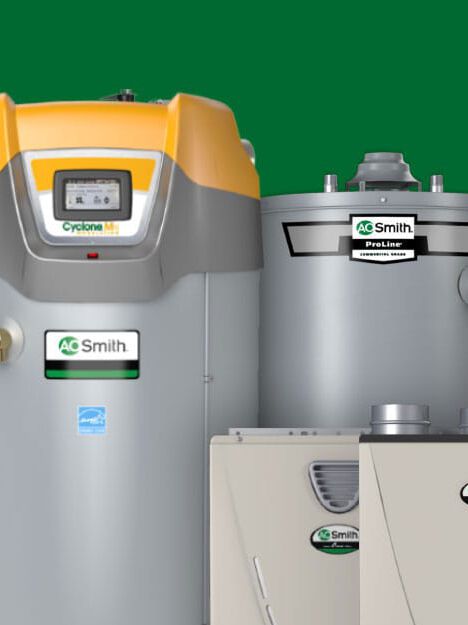
What Size Water Heater Is Right for You?
Table of Contents
Sizing a New Water Heater
When choosing a new water heater, it's important to get one that’s correctly sized for your needs. If it’s too small, there will be times when the water runs cold, while if it’s oversized, your energy costs will be higher.
The two main types of water heaters are tank storage heaters and on-demand tankless systems.
The purpose of this guide is to help you answer the question, “what size water heater do I need?” Topics include the basic principles of sizing a water heater, the differences between tank and tankless water heaters, and selecting the right size water heater.
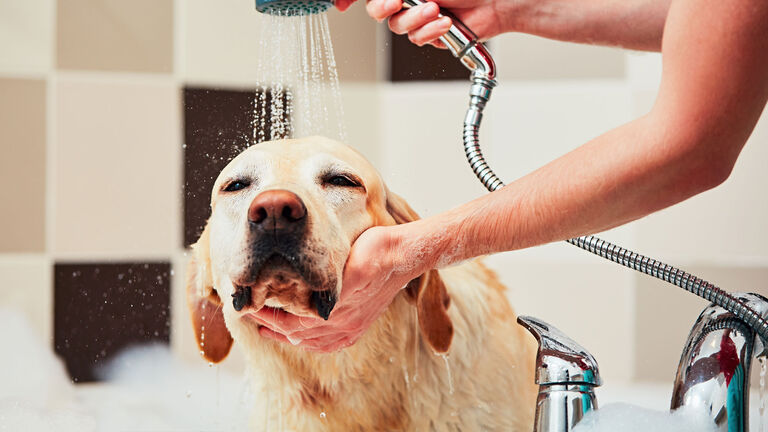
How Are Water Heaters Sized?
A water heater should be large enough to supply sufficient hot water for the family's needs. Things to consider include:
- Family size
- The number of bathrooms
- When everyone bathes or showers
- Hot water for washing
- Appliance hot water requirements
These factors determine the amount of hot water and when it is needed. They affect the size and type of water heater and influence factors such as how quickly the water heats up after use.
Sizing Tank and Tankless or Demand-Type Water Heaters
You might choose to use a tank storage water heater or a tankless, on-demand type heater, depending on your household needs.
- Tank storage heaters have a large insulated storage tank. They store hot water so it's available when needed.
- Tankless heaters heat water as you use it. They don't have a storage tank but have powerful heating elements or burners that instantaneously heat water to the correct temperature.
What Size Tank Do You Need?
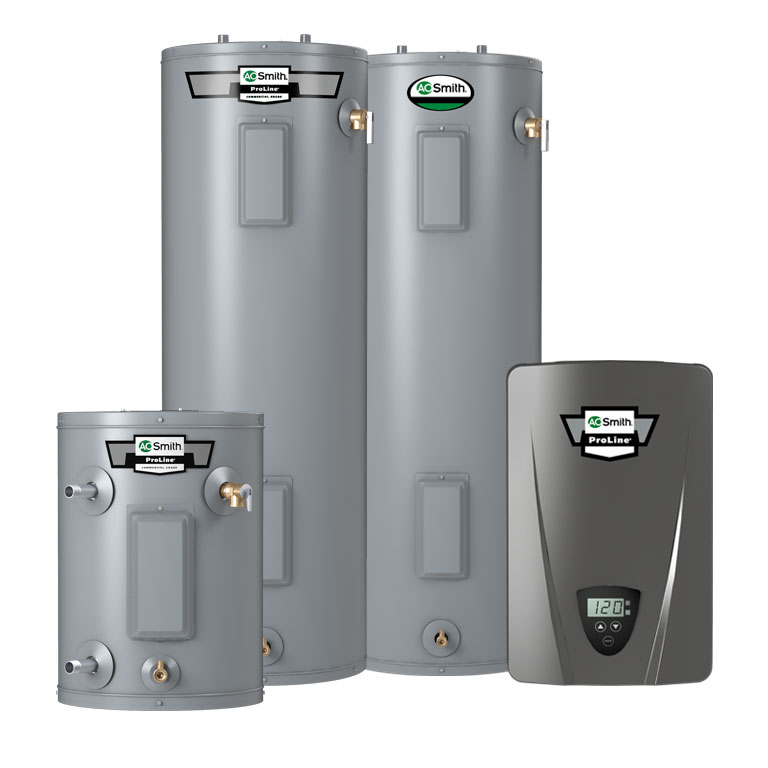
Sizing Tank Water Heaters
The basic principle for sizing a tank storage water heater is to determine the maximum amount of hot water needed at any time. So for example, if you take a bath while someone else in the family takes a shower, the storage tank must hold enough hot water to fill the bath and run a hot shower.
Another key factor is how soon you will need hot water again. If you're going to be washing dishes or using an appliance that requires hot water after you have bathed, the water heater needs enough power to reheat the water quickly.
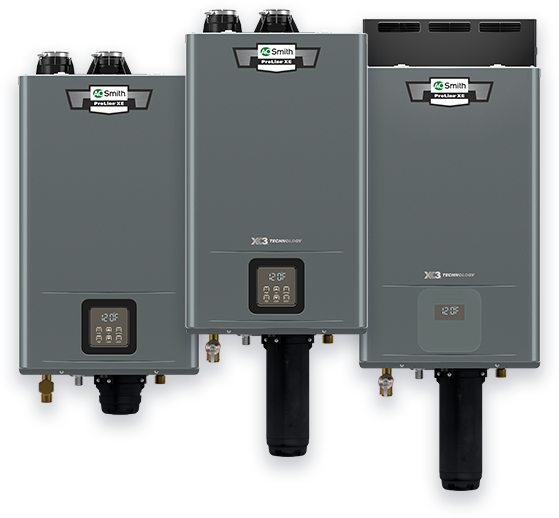
Tankless Water Heater Sizing
To estimate what size tankless water heater you need, work out the maximum hot water flow rate you require in gallons per minute. List all the hot water faucets and hot water appliances you use at the same time. If you don't know how much water each device uses, estimate it by holding a bucket under the outlet and measuring the water volume per minute. As a rough guide, a faucet has a flow rate of 0.75 gallons per minute and a normal shower head is 2.5 gallons per minute.
Use the above tankless water heater size calculator to find a water heater that meets your total peak hot water usage in gallons per minute.
Water Heater Sizes: A Guide
The size of a tank storage water heater is measured differently from a tankless water heater.
Storage tank heaters are rated by the amount of hot water they store in gallons. Typical capacities vary from small 6-gallon point-of-use storage heaters up to 100-gallon home water storage heaters. An important measure is the first-hour rating, which measures how much hot water the heater can provide over the first hour of use. The recovery rate is another important factor. Recovery rate is a measure of how quickly a water heater can replenish available hot water after use. This is measured as the gallons of hot water that the water heater can heat by 90 degrees F in 1 hour from cold.
The following table provides a guide to the approximate size of tank storage heaters for different sized households.
Tankless water heaters are rated according to their maximum hot water flow rate. This typically varies from 2.5 to 11 gallons of hot water per minute. Another factor to consider is the temperature difference between the incoming water and the set temperature, as this will significantly affect the volume of hot water produced in colder weather.
The ability of the water heater to provide hot water primarily depends on the size of the burner (gas models) or the size of the electric elements (electrical models). Gas tankless water heater burner sizes range from 140,000 BTU to 199,000 BTU per hour. Residential electric tankless water heater element ratings range from 14 kW up to 32 kW.
Physical Size: Storage Tank or Tankless?
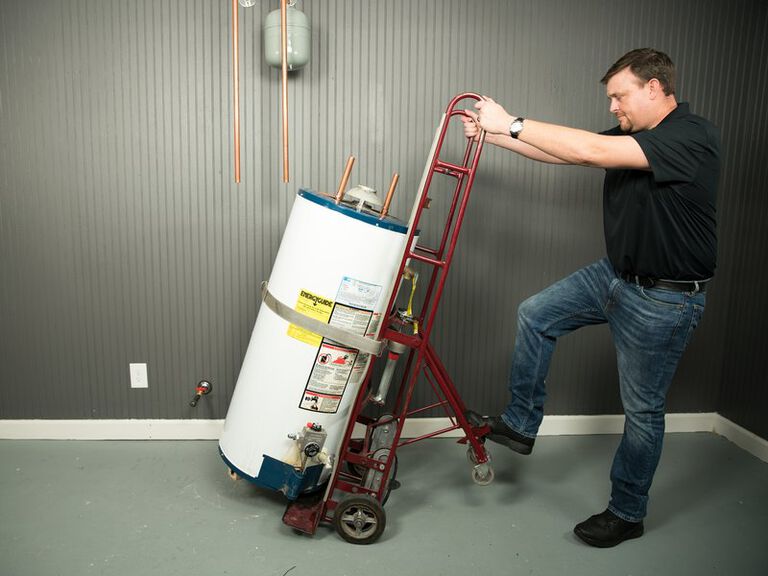
The physical size is another clear difference between storage tank and tankless water heaters. Size is an important consideration when it comes to choosing a water heater and deciding where to install the unit.
Storage Tank
A hot water storage tank is relatively large, especially units intended for larger households. Except for very small storage heaters, most have a height of between 50 and 70 inches and a diameter between 20 and 30 inches. They need a drip tray below the water heater and some space on the side or above the unit to connect pipes. This means they’re best installed in spaces like basements, garages and roof spaces.
Tankless
Tankless water heaters are small and can be installed in any convenient space in a kitchen or bathroom. It's also possible to install some models on the outside walls of the home. Tankless water heaters should ideally be installed close to the point of use to minimize heat loss and ensure instant hot water. Tankless water heaters are sometimes used as whole-house water heaters, especially in smaller homes or apartments. Another possibility is to use multiple tankless water heaters, each located close to where you use hot water.
What Size Tank Do You Need?

When choosing a hot water tank, consider the amount of hot water needed at any point in time and how quickly the water should reheat. The calculation method differs depending on the type of water heater you intend to use.
Storage Tank Heater Sizing
The best way to estimate the size of a storage water heater tank is to work out your peak hot water demand. This is when you and your family use the most amount of hot water. In large families, this is usually around bath time, but in smaller families, you may need to consider other factors such as dishwashers and clothes washers.
Estimate the amount of hot water you need during the peak hour by adding up the hot water demand as follows:
- Showers: Approximately 20 gallons per shower, more for long showers
- Bath: Assume half the capacity of the bath in gallons
- Dishwashing: 3 gallons
- Automatic dishwasher: 7 gallons
- Clothes washing: 20 to 25 gallons, depending on size
It's important to remember you are estimating peak demand, so only include water you use during that period. Once you have completed this calculation, choose a storage water heater with a first-hour rating that’s the same as or slightly larger than the calculated peak demand.

Tankless Water Heater Sizing
To estimate what size tankless water heater you need, work out the maximum hot water flow rate you require in gallons per minute. List all the hot water faucets and hot water appliances you use at the same time. If you don't know how much water each device uses, estimate it by holding a bucket under the outlet and measuring the water volume per minute. As a rough guide, a faucet has a flow rate of 0.75 gallons per minute and a normal shower head is 2.5 gallons per minute.
Use the above tankless water heater size calculator to find a water heater that meets your total peak hot water usage in gallons per minute.

Using a Residential Water Heater Selector
Another method for estimating the size of a water heater is to use an online water heater calculator such as A. O. Smith's XPERT Residential Water Heater Selector. The advantage of this type of calculator is that it allows for the length of your showers, the number of back-to-back showers and the size of your bathtub. The calculator has a page where you can choose between electric, natural gas or propane fuels. The ZIP code selector takes into consideration the local climate and compensates for the ambient water temperature where you live.
Here's How to Find Out If Your Water Heater Is the Right Size

Many homes have water heaters that aren't the right size for their needs. This may be because the house was built to an older standard or has been expanded or the water heater was sized for a smaller family. It could also be because you now use more appliances that need hot water or your family is growing.
Here are some ways to figure out whether you have the right-sized water heater.
Undersized Water Heater
If the water heater is too small, you will often run out of hot water, especially in winter. Make sure your water heater is working properly before deciding it's too small.
Check that the thermostat is correctly set between 120 degrees F and 140 degrees F. Don't set it above 140 F, as you may be scalded. If the water heater has more than one element, check that all elements are working. With tankless water heaters, you may find the water runs cold when everyone is using hot water. Alternatively, the flow of water may reduce to a trickle. This could be caused by a water heater that's too small, hot water pipes that are too narrow, or low water supply pressure.
Oversize Water Heater
If you have a storage water heater that's too large, your energy bills will be higher than necessary, particularly with older and less efficient storage heaters. Symptoms of oversized tankless water heaters include poor temperature control because the unit can't properly modulate for a lower water flow and frequent cycling of the burner.
What If I Don’t Have the Right Size Water Heater?
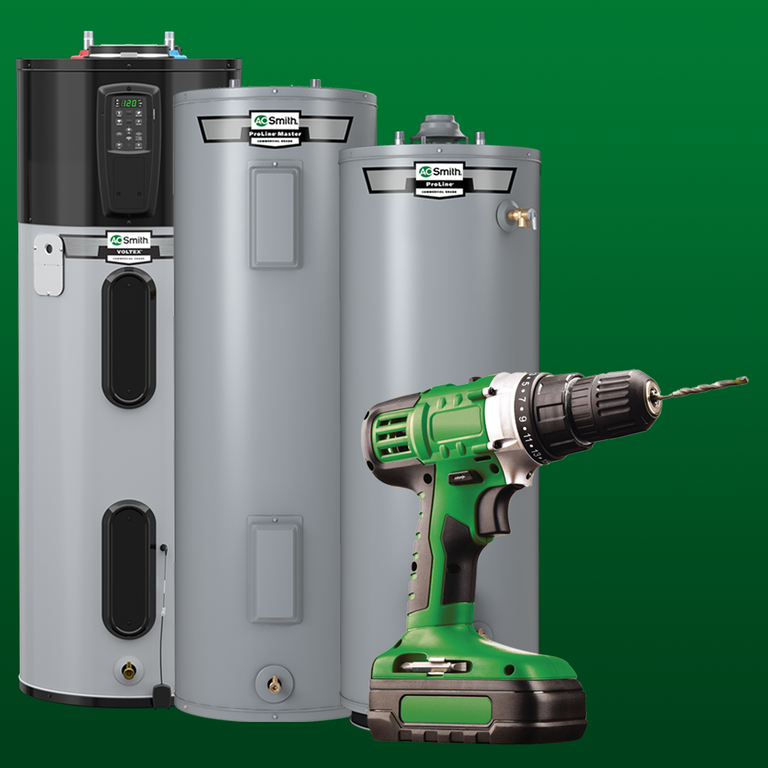
If your water heater is the wrong size, it's recommended to replace it with a unit that's appropriately sized for your household. Before going ahead, it's best to get advice from a professional installer.
If you have a storage tank heater, replacing it with a larger unit is usually the most economical solution. You will benefit from having plenty of hot water, and because newer units are more efficient, your energy bills will most likely decrease.
If you don't have sufficient space for a larger storage tank, consider adding a tankless heater to provide hot water for parts of the house where the hot water supply is insufficient. Likely candidates for a supplementary tankless water heater include the kitchen and bathroom. The same concept applies if your tankless heater is too small: It may be more economical to install a second tankless unit rather than upgrading to a larger heater.
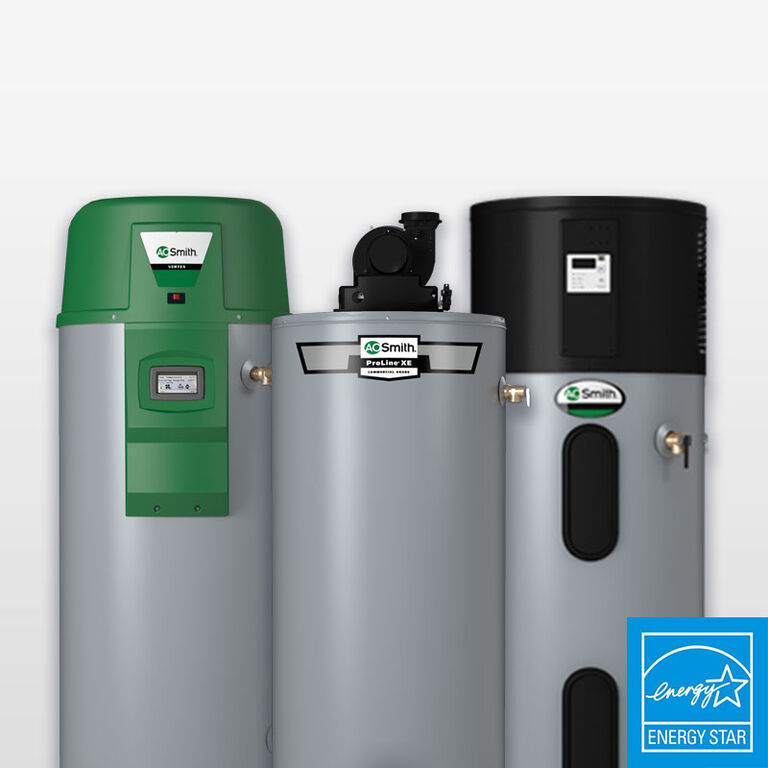
Other Water Heater Considerations
If you need to upgrade or replace the water heater, there are several things to consider. These include the type of water heater, its capacity, fuel type and how to reduce peak-hour heating costs.
Type of Water Heater
Depending on your needs, it may be an idea to change from a tank storage heater to a tankless heater. This can reduce water heating costs and offer the convenience of instant hot water where you need it. Factors to consider include the higher purchase price and installation cost weighed against lower running costs. Conversely, in some situations, it may make sense to switch from a tankless system to a storage tank heater.
First-Hour Rating
The first-hour rating determines the maximum hot water volume you can use in an hour. The higher the figure, the greater the amount of hot water that's available. Also, look at the hot water recovery rating, as this shows how quickly the water heater will reheat after extended use.
Fuel Type
Upgrading your water heater is an opportunity to convert to another fuel for hot water heating. Depending on your location, this may allow you to convert to a fuel that offers lower heating costs.
Peak-Hour Demand
Some utilities offer time-of-use electricity tariffs. Under these plans, you pay more for electricity during times of peak demand, usually on weekday evenings. Conversely, you pay less during off-peak periods. You can maximize energy savings by purchasing a water heater fitted with the A. O. Smith iCOMM ™ Smart Connectivity module or the Smart Demand Response port that works with utility demand control modules.
Want to Upgrade Your Water Heater?
Is your water heater the wrong size? If your hot water requirements are different from what the old water heater can supply, and you want to upgrade, find an approved A. O. Smith water installer near you. Simply enter your address or ZIP code in the search box and find a professional installer in your area.
Problems With Your Water Heater?
If you believe your water heater is the right size, but suspect there's a problem with it, we recommend you contact an approved local service provider. Use this water heater repair or replacement guide to troubleshoot your water heater before calling for service. Also, check our Support Resources to find information and replacement parts for your water heater.